





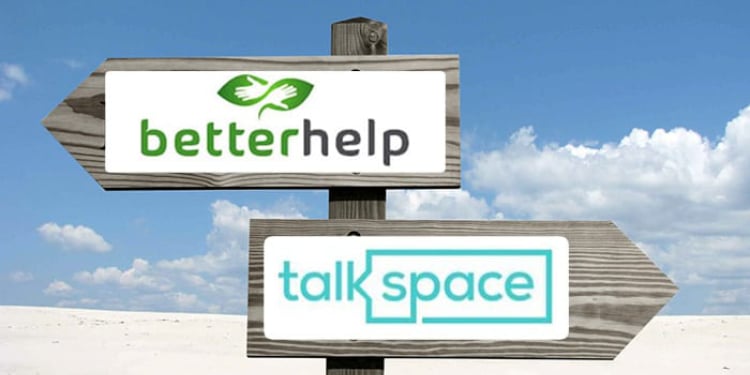




In recent years, psychotherapists have embraced change and integrated online resources and services into their practices, allowing them to treat patients remotely. Not surprisingly, new technologies and innovations have developed around making online therapy treatment more convenient and effective. One such tool, designed to simplify the therapy process and greatly improve treatment outcomes is Quenza, a platform that brings therapy and coaching into the 21st century. In our ongoing effort to cover how technology is being used to improve the delivery and efficacy of psychotherapy, we set out to test and review Quenza.
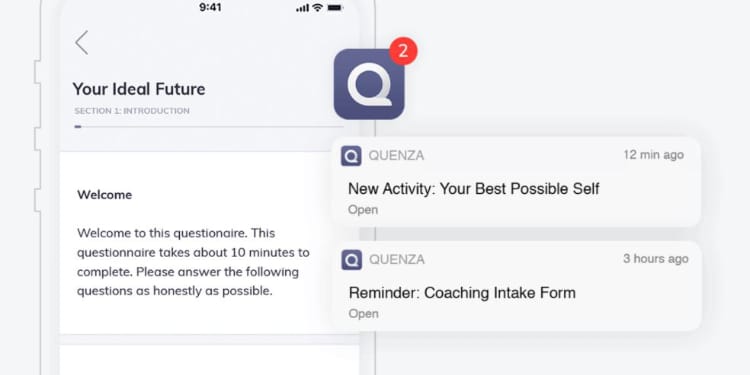
Founded by a team of technologists working in the psychology space, Quenza is an online platform that acts as a supplement for one-on-one coaching or therapy sessions.
The idea behind this app is relatively simple. Both therapy and coaching involve between-session tasks and exercises designed to help you adopt healthy habits, manage difficult emotions, and achieve your goals. On top of that, mental health professionals often need various assessment tools to conduct evaluations, monitor your progress, and collect feedback.
Although you may not feel like doing them at first, remember that exercises and assessment forms help professionals adjust the process and tailor it to your needs and goals. Without between-session assignments, therapy and coaching would be nothing more than a casual exchange of ideas between two people. Personal growth and change are processes that require active involvement and periodic monitoring.
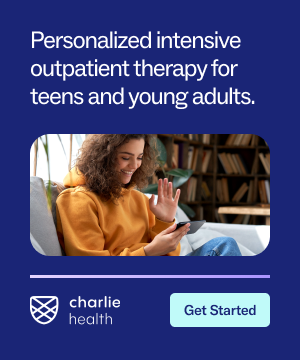
Long story short, there is a constant flow of worksheets, educational materials, and assessment forms being passed between you and your therapist. Sometimes, files can be easily misplaced, and emails are overlooked by mistake. But with Quenza, this entire process takes place on a simple and easy-to-use app. Having everything in one place eliminates the hassle of sending emails back and forth. Plus, you get push notifications and reminders so that you can stay on top of your daily or weekly assignments.
Homework compliance is a vital aspect of the therapeutic process, and mobile apps like Quenza can keep therapy clients engaged and help them follow through with their daily or weekly assignments.[1]
Whenever your therapist sends an assignment, you will be notified via mobile app or email, whichever you prefer. You can then read and complete your assignment on your phone or access Quenza on your web browser.
Once you complete an assignment, read educational materials, or fill in a feedback form, your therapist will receive a notification. That way, he or she can keep track of your progress and even adjust the intervention plan on the fly. This constant stream of data allows your professional to make informed decisions and update your assignments, thus ensuring better results. Furthermore, all this information will remain securely stored in the app, creating a database that can provide useful insights to address during one-on-one sessions.
The fact that you can monitor your progress and keep your assignments organized in one place will boost your motivation and engagement, increasing the chances of better results from your treatment.
Quenza allows your therapist to create personalized activities and pathways that help you achieve your goals. However, the app also has a library packed with made exercises, psychoeducation materials, and assessment tools that your therapist can recommend, depending on what you wish to gain out of the therapeutic process. This includes guided meditation and breathing techniques, gratitude exercises, and self-assessment tools. In a world where the Internet is saturated with self-proclaimed gurus and pseudoscience, platforms that promote reliable, evidence-based approaches to mental health and well-being are refreshingly helpful.
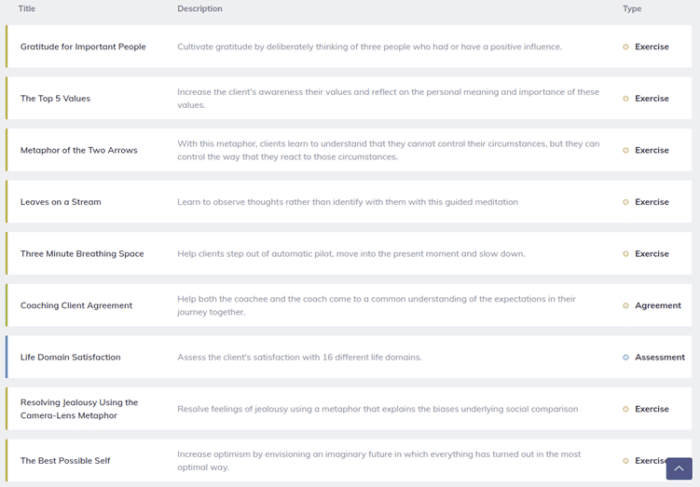
Anyone who’s been in therapy or worked with a coach knows that everything you share remains between you and your counselor. Mental health professionals are required by law to protect patient confidentiality. They can discuss the case with a supervisor, but only with your consent, and share information with authorities, under very specific circumstances.
Confidentiality builds trust and creates a safe space where you can ‘open up’ and discuss intimate aspects of your life, knowing that everything will be kept secure and private. When you’re sharing sensitive information with another person via online channels, privacy, and confidentiality should be an even higher priority.
Aside from being HIPAA and GDPR compliant, Quenza requires all users to have a personal PIN code as an extra security layer. As a result, the professional-client interaction takes place in a secure virtual space where all the information is stored using the latest encryption technology available.
A vital part of the therapeutic process is learning. In other words, it is essential to understand the big picture of what you’re going through and how different mental processes work before you move on to adopting healthy habits and improving your overall sense of well-being.
Professionals call it ‘psychoeducation,’ and it is one of the first steps in the therapeutic process. In a nutshell, psychoeducation combines psychotherapy with education to help clients better understand their conditions and learn how to manage specific problems they face. One of the keys to effective psychoeducation is simplicity; the complex information needs to be explained in a way that clients can understand regardless of their educational backgrounds.
For instance, this metaphor from the Quenza platform is a simple and elegant way to explain the difference between pain and suffering, without using boring ‘textbook’ definitions.
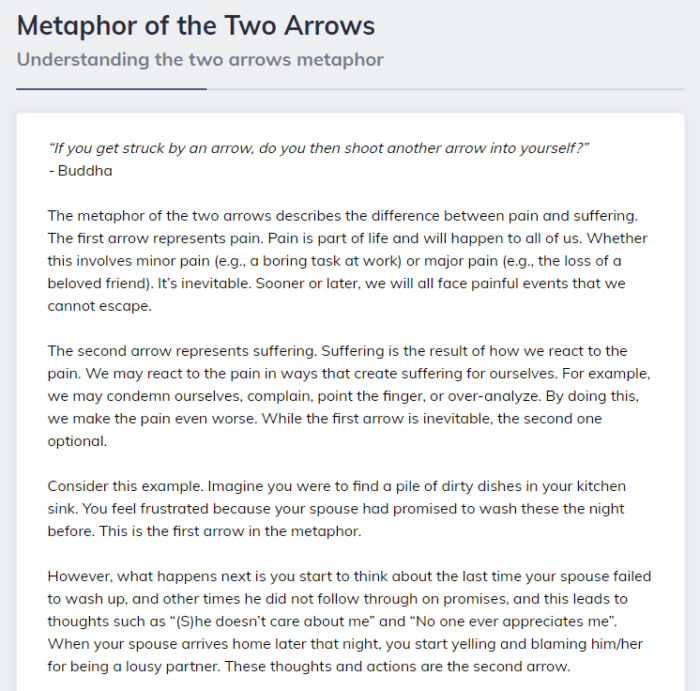
Psychoeducation can be used in a wide variety of situations, from emotional and mental health issues to relationship problems and work-related difficulties.
Current evidence suggests that psychoeducation is a straightforward, easy-to-implement approach that significantly improves treatment outcomes. By understanding how conditions like depression or anxiety work, you have a better shot at keeping them under control. As a user whose therapist uses Quenza, you can access a large library of educational materials via your mobile device, anytime, anywhere.[2]
In summary, Quenza is a valuable addition to any coaching or therapeutic process and a useful ally in one’s endeavors to achieve mental and emotional well-being.
References